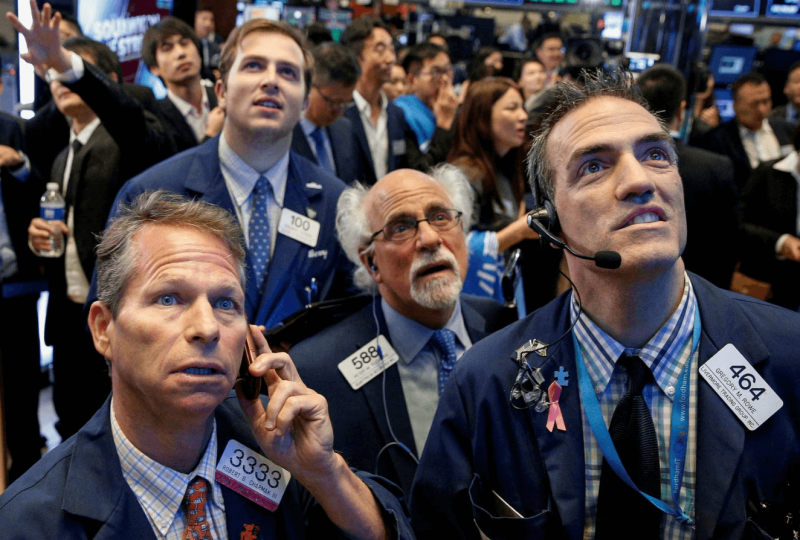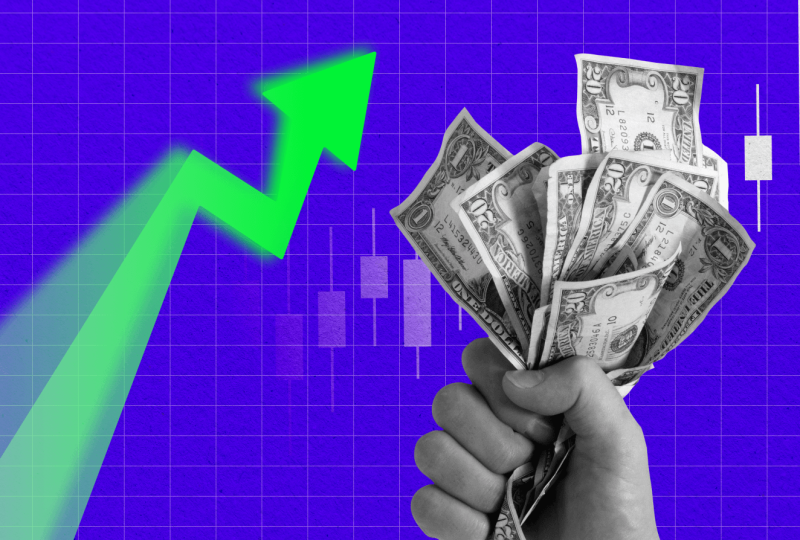Stock Market News Live Updates: Stocks Rise, Oil Prices Soar As Investors Eye Russia’s War, Powell’s Testimony
Mar 02, 2022

Shares gained on Wednesday, recouping some of the week's heavy losses, as concerns over Russia's campaign in Ukraine and its consequences for the world economy weighed on risk assets. Traders were also watching for comments from Fed Chairman Jerome Powell, who suggested the central bank was still on pace to hike interest rates later in March despite recent geopolitical tensions.
At session peaks, the S&P 500 was up over 2%. The blue-chip index fell 1.6% on Tuesday, increasing Monday's losses and putting the start of March trading on unstable ground. The Dow and Nasdaq recovered after plunging significantly earlier in the week, with risk assets weakened as investors pondered the possibility of broader supply chain and financial sector disruptions as Russia stepped up its assault in Ukraine and Western sanctions continued.
In the midst of continuing geopolitical tensions, energy prices rose, with West Texas Intermediate crude oil prices surging beyond $100 per barrel to exceed $112, the highest price since 2011. OPEC+ announced on Wednesday that it would boost production by 400,000 barrels per day in April compared to March, maintaining the rate of production growth the same as in previous months, notwithstanding limited oil supplies.
The recent rise in energy prices occurred even after the International Energy Agency decided on Tuesday to discharge 60 million barrels from global reserves to help relieve some of the strain on the energy market.
"The issue is that it would not be sufficient to mitigate the effects of a possible supply shock from Russia, which is what the markets are dealing with at the moment," said Ahmed Riesgo, a chief investment officer of Insigneo.
"In the current economic climate, all investors need to ask themselves: Will Russian exports continue? And if the answer is no, then we need to reduce risks even more. And if the answer is yes, then this may be an indication that the bottom is near."
As of now, the West's extensive sanctions on Russia have included, among other things, limits on the Russian central bank, connection to the SWIFT international financial transactions system, and asset freezes on a range of major Russian institutions and people.
Many large corporations have also increased pressure on Russia, like Apple, which announced on Tuesday that it would halt all product sales to the nation, and Disney, which announced that it would cease distributing films in Russia. Nonetheless, with many S&P 500 components relatively unaffected by Russia and Ukraine in terms of profits, many analysts believe the immediate impact on U.S. company earnings and the economy will be limited.
"Fears are starting to grow that the expanded sanctions on Russia and its officials, which now include limitations on the crucial SWIFT financial platform, as well as Russia's central bank and Putin himself, will have unpredictable consequences on international markets," Louis Navellier, chairman, and founder of Navellier & Associates noted. "This is in addition to the interruption of all goods delivered by Ukraine to global markets. Most of the fallout is expected to fall on Europe, with China already moving up to offer new markets for Russian products, making the United States much more of a safe harbor than it previously was."
Nonetheless, the instability caused by the conflict and the prospect of increased global oil prices has led investors to believe that the Fed would avoid a hawkish stance after its March monetary policy session. Fed Chairman Jerome Powell is scheduled to give testimony before Congress on Wednesday as part of his semi-annual appearance before legislators, providing the Federal Reserve leader's first public statements on how the geopolitical landscape has informed the Fed's thoughts on interest rate rises and monetary policy tightening for the remainder of this year. To that end, Powell stated in a prepared comment that he still believes "it will be prudent to increase the target range for the federal funds rate at our session later this month," although the conflict in Europe would necessitate the Federal Reserve to be "nimble."
"We believe that the next estimates, coming in three weeks, would indicate five or perhaps six interest rate rises in 2022, prior to the war in Ukraine," Ian Shepherdson, chief economist at Pantheon Macroeconomics, said. "Currently, it would be surprising to see six tightenings, and some of the more speculative market expectations now seem to be off the mark. We didn't anticipate a 50bp hike in March, and now it seems even less likely."




